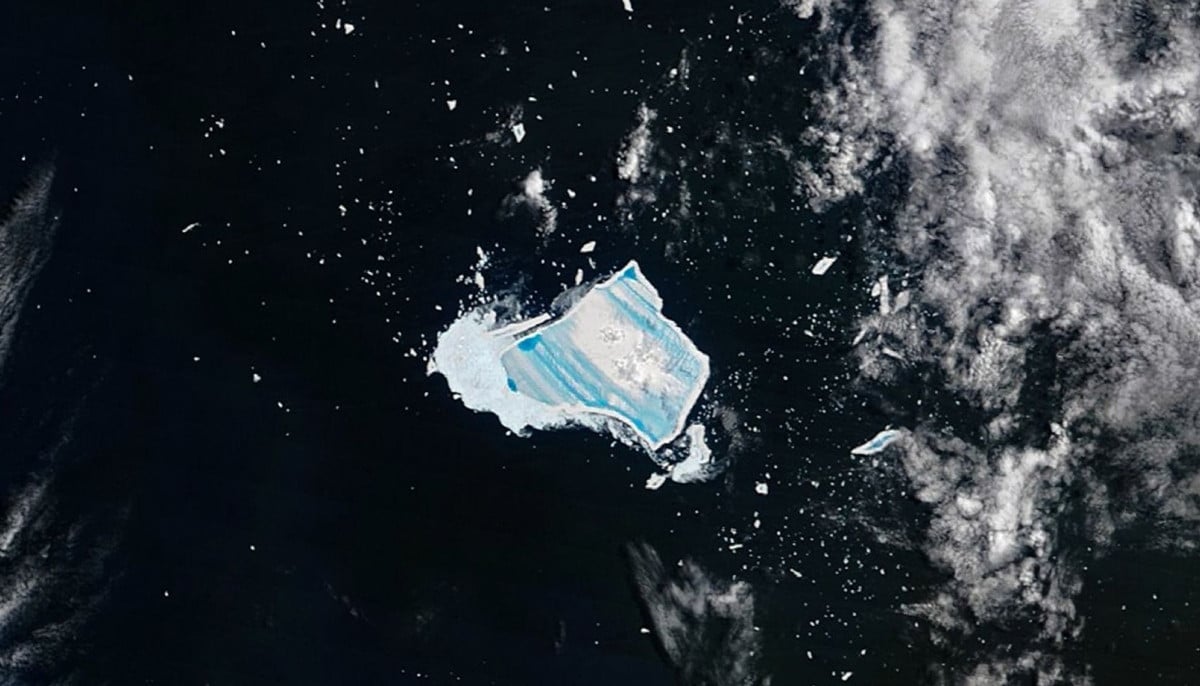Pantropical spotted dolphin released safely
Pantropical spotted dolphin (Stenella attenuata) locally known as “Tushuk” in Balochi and “Gokin” in Sindhi is found in all temperate and tropical oceans around the world. It is considered to be very active in making large, splashy leaps from the sea.
KARACHI: WWF-Pakistan trained fishermen led by Ameer Badshah, captain of a tuna fishing boat, safely released a 2-metre long Pantropical spotted dolphin which became entangled in the gillnet while operating in the Indus Canyon about 176 km southeast of Karachi on Tuesday.
Pantropical spotted dolphin (Stenella attenuata) locally known as “Tushuk” in Balochi and “Gokin” in Sindhi is found in all temperate and tropical oceans around the world. It is considered to be very active in making large, splashy leaps from the sea.
It is believed that coastal and offshore dolphins are prone to anthropogenic factors including commercial fishing, habitat degradation, vessel traffic and other coastal development activities.
Population of this species in the Southeast Asian region including those in Pakistan are listed in Appendix II of the Convention on the Conservation of Migratory Species of Wild Animals (CMS). According to the IUCN Red List of Threatened Species the pantropical spotted dolphin is considered as Least Concern.
While, three fishermen namely Ghulam Mustafa, Ghulam Sarwer and Ghulam Murtaza facilitated by WWF-Pakistan trained Abdul Qayoom also released a 1.5 metre long Indian Ocean humpback dolphin which was entangled in their gillnet when operating in Nandi Bandar, Miani Hor, Lasbella district on Sunday.
According to Muhammad Moazzam Khan, Technical Advisor (Marine Fisheries), WWF-Pakistan the population of Pantropical spotted dolphins is believed to have declined in Pakistan. It is one of the common dolphins that becomes entangled in fishing nets operating in coastal and offshore waters.
A few years back, dolphin mortality in the gillnet fisheries was estimated to be about 12,000 annually. However, to address this issue WWF-Pakistan raised awareness among fisher communities on the use of subsurface gillnet in offshore waters which resulted in phenomenal decrease in the mortality of dolphins.
It is estimated that now only about 30 to 40 dolphins die annually as a result of gillnet operations. It is estimated that at present there are about 8,700 gillnet vessels operating in coastal and offshore waters; of which about 700 fish in offshore waters.
Once entangled, dolphins drown and die immediately. However, in a few cases, entangled dolphins have survived on board fishing vessels.
-
Iceberg A-23A turns blue as scientists warn collapse is imminent
-
Matt Damon gets candid about standing by Ben Affleck during tough times
-
Environment Canada weather warning as cold front brings strong winds to Ottawa
-
Jennifer Lawrence reveals which pet she got after letting dog go
-
'Emily In Paris' season 5's 'most challenging' scene revealed
-
Kelly Clarkson achieves major music milestone
-
King Charles, Prince William concerned about Andrew's mental health
-
Punjab by-polls: Notices served on minister, SAPM for ‘violating’ election code of conduct











